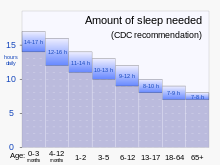Get Enough Sleep: The Secret to Optimal Health
Revealing the Benefits of Adequate Sleep for Physical and Mental Health
Sleep is a biological need that is important for our Health and well-being. Many of us tend to ignore the importance of getting enough sleep in our daily lives. But did you know that getting enough sleep has great benefits for our physical and mental health? Let’s explore the amazing health benefits of getting enough sleep.
Benefits of sleep for physical health:
Increases immunity: While sleeping, our body repairs and strengthens the immune system, thereby helping fight infections and diseases.
Supports Heart Health: Getting enough sleep can reduce the risk of heart disease and high blood pressure.
helps maintain a healthy weight. Lack of sleep can disrupt the balance of hormones that regulate appetite, causing weight gain. Getting enough sleep helps keep these hormones in balance, allowing you to control your weight more effectively.
Benefits of Sleep for Mental Health:
Increased Concentration and Productivity: Adequate sleep plays an important role in memory consolidation and improves information processing, making you more focused and productive while awake.
Improves emotional well-being: Getting enough sleep helps maintain the balance of brain chemicals that influence mood, making you feel happier and more emotionally stable.
Reduces risk of mental disorders: Lack of sleep is associated with an increased risk of mental disorders such as depression and anxiety. Getting enough sleep helps protect your mental health.
We know the incredible benefits that getting enough sleep can have on your physical and mental health, so it’s important to properly prioritize your rest time each night. Getting enough sleep allows your body and mind to function optimally, allowing you to reach your full potential in everyday life. So, don’t forget to get enough sleep even in your busy schedule.
Practical Tips to Improve the Quality of Your Sleep Every Night
Good sleep is the key to health and happiness. However, for many people, achieving quality sleep is often difficult. Here are some practical tips to help improve the quality of your sleep every night.
- Set a consistent sleep schedule
Try to go to bed and wake up at the same time every day, even on weekends. Maintaining a consistent sleep schedule will regulate your body clock and improve your overall sleep quality. - Avoid stimulants before bed
Avoid caffeinated drinks such as coffee and tea several hours before bed, and limit alcohol and nicotine intake. These stimulants can disrupt sleep and cause sleep disorders. - Create a comfortable sleeping environment
Make sure your bedroom is quiet, dark and cool. Use an eye mask or earplugs if necessary, and consider investing in a comfortable mattress and pillow. - Limit exposure to blue light before bed
Avoid exposure to blue light from cellphone, tablet or computer screens at least one hour before bed. Blue light can interfere with the production of sleep hormones, making it more difficult for you to fall asleep. - Relax before bed
Try relaxation techniques such as meditation, deep breathing, and yoga to calm your mind and body before bed. Taking a warm bath or reading a book can also help the body relax and prepare for sleep. - Limit stimulating activities before bed.
Avoid stimulating activities such as: For example, if you watch a stressful movie or work late at night, do it at least an hour before bedtime. Try to calm your mind so it is ready for sleep. - Stay physically active during the day
Regular exercise during the day can reduce fatigue and prepare the body for a good night’s sleep. However, avoid exercising too close to bedtime because it can disrupt your sleep.
How Quality Sleep Affects Your Productivity and Well-Being
Good sleep is the most important foundation for optimal productivity and good health. Unfortunately, in our busy and stressful lives, many of us neglect the importance of adequate and quality sleep. But did you know that good sleep has a big impact on how we feel, think and act every day? See how good sleep can impact your productivity and health. Let’s see.
Increase Productivity
Good sleep plays an important role in increasing productivity. When we sleep, our body and brain rest and recover from daily activities. This means we wake up every morning refreshed, healthy, and ready to face difficult challenges.
- Improved concentration: Getting enough sleep improves your concentration, so you can work more efficiently and effectively.
2. Improved memory: During sleep, our brain processes and stores information learned throughout the day. Getting enough sleep strengthens your memory and improves your learning ability. - Increased creativity: Good sleep has been proven to increase the ability to think creatively and find new solutions to complex problems.
Improving Welfare
Apart from increasing productivity, good sleep also has a positive impact on our overall well-being. Getting enough sleep makes you feel better physically, emotionally and mentally.
- Improves mood: Lack of sleep is associated with an increased risk of depression and anxiety. Getting enough sleep helps maintain the balance of brain chemicals that influence mood, making you feel happier and more emotionally stable.
2. Reduce stress: Getting enough sleep reduces stress levels and improves your ability to cope with daily challenges. - Improves your physical health: Good sleep is an important factor in maintaining your physical health. With enough sleep, our immune system is stronger, our risk of chronic disease is lower, and our energy levels are higher.
Understanding the Impact of Sleep Deprivation and How to Overcome Sleep Disorders for Optimal Health
Knowing how important good sleep is to our productivity and health, it’s important to properly prioritize your night’s rest. Getting enough, quality sleep will help you be more productive, feel better overall, and reach your full potential in everyday life. Don’t forget to get a good night’s sleep even when you are busy
Lack of sleep is a common problem that can have a serious impact on our health and well-being. If you don’t get enough sleep or suffer from sleep disorders, your body and mind will not have a chance to fully recover, which can lead to various health problems. Let’s explore the impacts of lack of sleep and some ways to overcome sleep disorders and achieve optimal health.
Effects of lack of sleep:
- Lack of focus and concentration: Lack of sleep can make it difficult to concentrate and maintain concentration, which can affect performance at work and other daily activities.
- Increased health risks: Lack of sleep is associated with an increased risk of several health problems, including obesity, diabetes, heart disease, and high blood pressure.
- Mood Disorders: Lack of sleep can affect mood, causing irritability, anxiety, and depression.
- Weakened immune system: Adequate sleep is important for immune system function. Lack of sleep can weaken the immune system and increase the risk of infection and disease.
How to overcome sleep disorders:
- Develop healthy sleep habits: To improve sleep quality, set a consistent sleep schedule and create a comfortable and peaceful sleep environment.
2. Avoid stimulants before bed: These stimulants can disrupt sleep, so limit caffeine intake and avoid alcoholic beverages several hours before bed. - Regular exercise: Regular exercise helps improve sleep quality. However, avoid exercising too close to bedtime.
- Relaxation and meditation: Try relaxation techniques such as meditation, deep breathing, and yoga to calm your mind and body before bed.
- Consult a doctor: If you experience severe or chronic sleep disorders, please consult a doctor or sleep specialist for further evaluation and appropriate treatment plan.
Understanding the impact of sleep deprivation and taking steps to address sleep disorders can help you improve sleep quality and achieve optimal overall health. Remember that getting enough and quality sleep is an important investment in your health and well-being.




